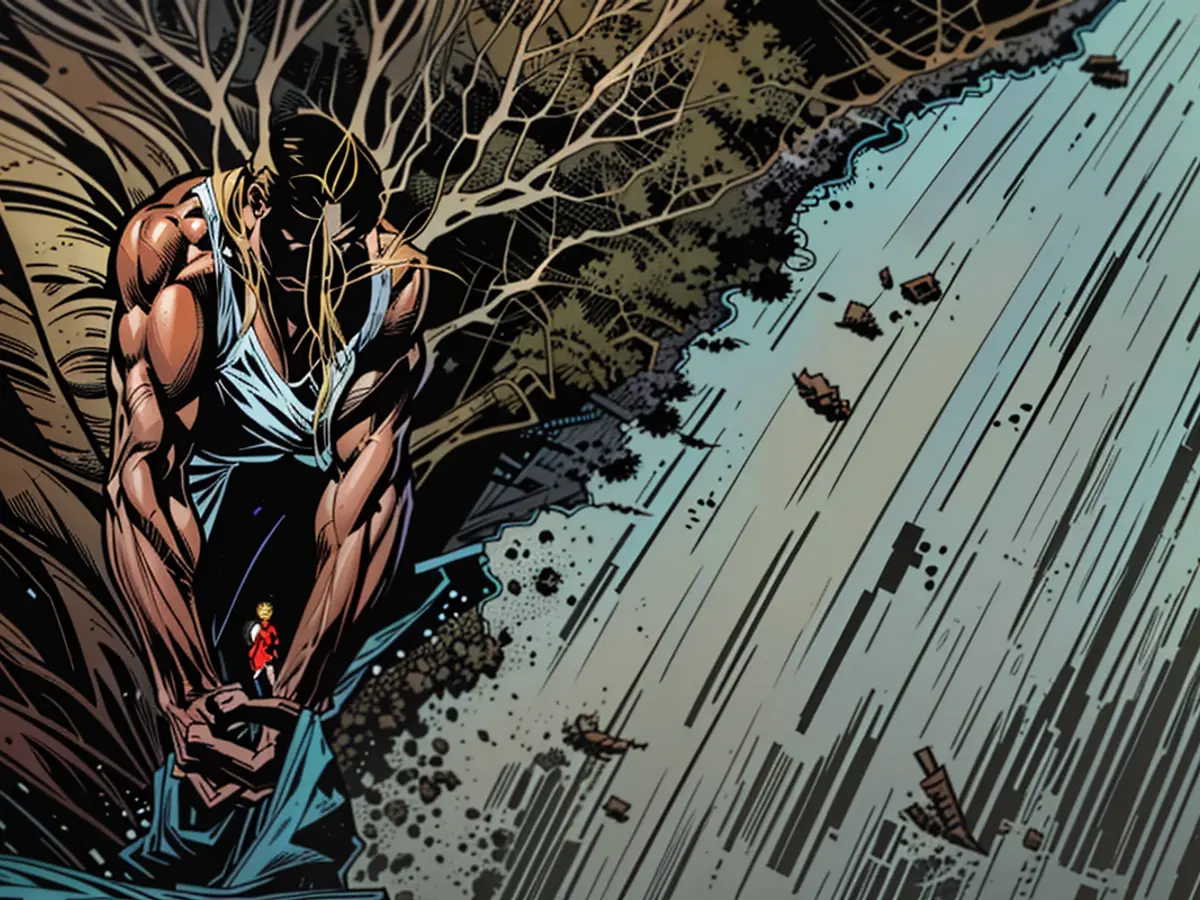A three-legged lion swims through the Crocodile Channel
Shot with a Spear, Injured by Poachers: Jacob is the Most Resilient Lion in the World. So at least labels him a Researcher, who has followed the animal for years. Now he also breaks a swimming record for lions - in a Crocodile-infested Body of Water.
A Cat has seven lives, so they say. Jacob is a living proof that the fabled tenacity of cats is real: The lion has faced numerous life-threatening situations in his life - making him a local icon, as reported by a Research Team in the Journal "Ecology and Evolution". Now the three-legged Senior Lion can claim the longest recorded swimming distance of a lion by researchers. He likely took the dip in crocodile-infested waters out of love.
"Jacob has an incredible journey behind him and is truly a cat with seven lives," said lead author Alexander Braczkowski from Griffith University in Brisbane. In his view, Jacob is the most resilient lion in Africa: "He was gored by a buffalo, his family was poisoned for the trade in lion body parts, he was caught in a poacher's snare and lost his leg in another poaching attempt, where he fell into a steel trap."
Lions, like other big cats, can swim, but they do so rarely. The ten-year-old Jacob swam together with his brother Tibu for over a kilometer towards the Katunguru Peninsula in the Kazinga Channel in Uganda in February. This natural waterway between Lake George and Lake Edward hosts one of the densest populations of hippos and Nile crocodiles in the world.
Pursuit in the Channel
Recordings from a thermal imaging camera on a drone show that the two African Lions (Panthera leo) swam back and forth multiple times at night, at least once pursued by a hippo or crocodile. They eventually broke free and went ashore after a one to one and a half kilometer long swim.
There have been reports of swimming lions before, the research team noted. However, they were only swimming a few hundred meters at most, and in some cases, crocodiles had ended their swimming excursion. A Nile crocodile can weigh up to four times as much as a large lion cub, making it difficult for the lion to defend itself against attacks while swimming. Hippos, on the other hand, are notoriously aggressive and react violently to disturbances.
Experienced lions like Jacob and Tibi are well aware of the danger from crocodiles and hippos. Why would they swim kilometers through the channel in the dead of night?
"It's likely that the brothers were on the hunt for females," explained Braczkowski. In the hours leading up to their daring swim, they had unsuccessfully fought with rivals for the affections of a female in their territory - and possibly hoped to encounter lionesses on the other side of the canal. Whether they actually found the desired romantic encounters remains undisclosed by the researchers.
African Lions are an Endangered Species
Lions are the second largest big cats in the world after Tigers. Males are significantly larger and heavier than females and live up to approximately eight to ten years in the wild. There are estimated to be around 20,000 to 40,000 Lions in Africa, many populations are declining. The Lion (Panthera leo) was declared a threatened species by the King of the Savanna. The main cause is primarily the loss of habitat caused by humans.
Surviving in the Queen-Elizabeth National Park in Uganda is already an achievement due to human settlement pressure and poaching, said Braczkowski. The Lion population there has halved in the last five years.
Following their territory disputes, Jacob and his brother Tibi, two resilient lions living in Uganda's Queen-Elizabeth National Park, swam an unprecedented distance of over a kilometer in the crocodile-infested Kazinga Channel in search of potential mates. This remarkable behavior was documented by a Behavior Research Team in Africa.
Despite facing numerous threats, particularly poaching, education and awareness about the importance of protecting these endangered African lions is crucial to their survival, as highlighted by various Conservation and Education Programs across Africa.








